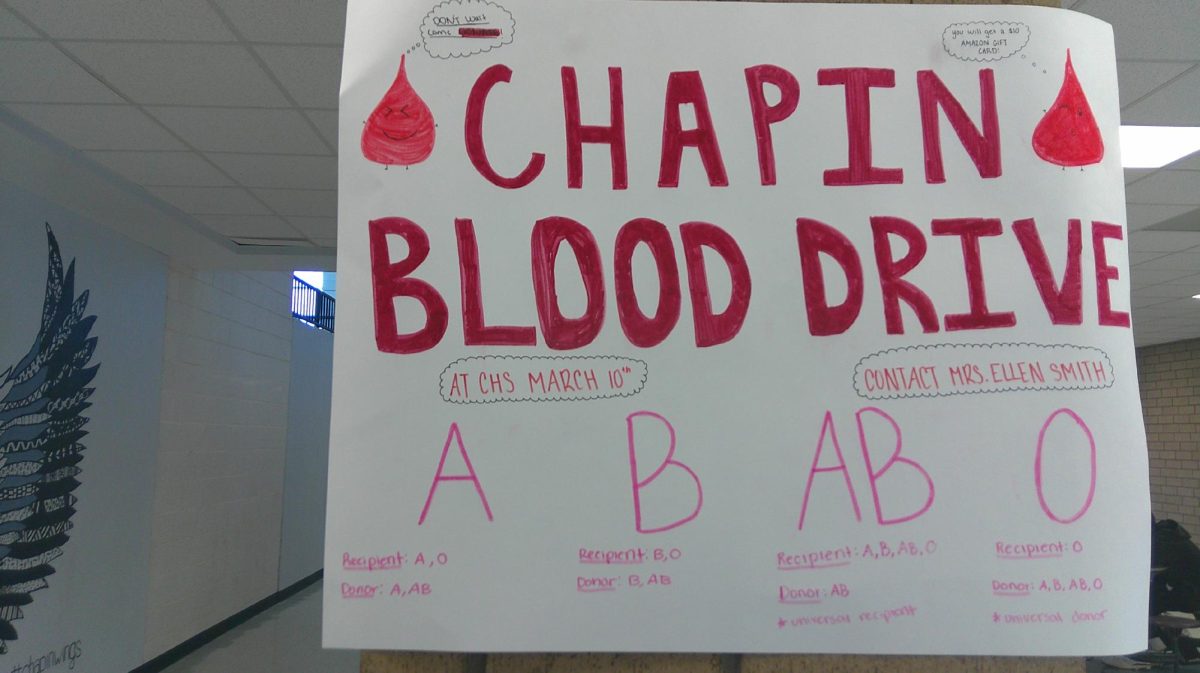Chapin High School has decided to change vending machine options in an attempt to help students to make better choices in the food they eat.
When students showed up to school August 19, they were greeted with a change that was, for teenagers, quite terrible: all of the vending machines were empty.
As if the absence of the highly caloric, colorfully packaged treats was not enough of a shock, some of the machines now read “Yo!Zone: Natural Foods” Within hours there were several different stories floating around.
“Someone told me that it’s going to be all celery and spinach and nasty vegetables- yuck,” freshman Kaelyn Tharpe said.
Tharpe expresses the attitudes of many students. Students feel as if the school is catering more to the teens that prefer or need the health food.
“Just because some people are having trouble staying healthy doesn’t mean it’s fair for everyone to be limited in what they can get,” says junior Eric Combs.
Other students don’t mind the new food so much.
“I understand the need for healthy food, I just hope that there are still a few unhealthy options left,” sophomore Kimberly Breland said.
Some less healthy options remain. Doritos, Fritos, Reeses, and other junk options can still be found in some machines.
Besides more choices, the new machines also bring more revenue.
100% of the profit goes to CHS, as opposed to the 20-30% received from the old machines. Snacks are $1-$1.50. The money will be spent on improving the cafeteria, providing school wide activities like the “CHAPIN” spelling on the football field, and other treats for the student body.
“By decreasing the unhealthy choices, you give students a chance to say, “Alright let me try a granola bar,” or “Let me see how I like this trail mix,”” Principal Akil Ross said. Students may find that they actually like some of the new options even more than the old choices.
Mr. Ross believes some student anxiety is based on the term “organic” and a lack of understanding of that term.
“Organic food is food that helps your organs,” Combs said.
Mrs. Worley views organic foods as more of a marketing ploy to get consumers to pay more.
“To me, organic food is over-priced, and it is more of a label than anything else,” English teacher April Worley said.
While organic food may help organs that is not the designed purpose. The National Organic Program defines organic food as food grown without pesticides, growth hormones, or genetically altered organisms and has no artificial additives. The number of organic farms has nearly doubled in the last 9 years and experts forecast stead growth in the years to come.
“The school should present the option of health choices in food, but not force it upon the students, because ultimately it’s the students responsibility what they eat,” said sophomore Jon Simmel.
The most misunderstood aspect of the new vending machines among students and staff alike is that there is healthy food and healthy food only. There are less unhealthy snacks but students have options like Monkey Ice, Otis Spunkmeyer cookies, or candy from ROTC members when they wish to indulge.
“Starting the conversation is my goal. Finishing is going to be the obligation of the students,” Mr. Ross said.





